Understanding the pros and cons of lightweight generators is essential for making an informed decision about portable power solutions. Lightweight generators are designed to be compact and easy to transport, providing a reliable energy source for various situations without the bulk of traditional models. This article explores the key advantages and drawbacks of these versatile power units.
What is a Lightweight Generator?
Definition and Description
A lightweight generator is a compact and portable power source designed for easy transport and use. Unlike traditional generators, these units are smaller and often feature an ergonomic design, making them ideal for situations where mobility is essential. They use advanced technology to deliver a reliable power supply without the bulk or weight of larger models.
Lightweight generators typically run on gasoline, propane, or solar energy. They are engineered to provide efficient energy output while maintaining a manageable size and weight. These generators are built to be user-friendly, with straightforward controls and minimal maintenance requirements.
Common Uses and Applications
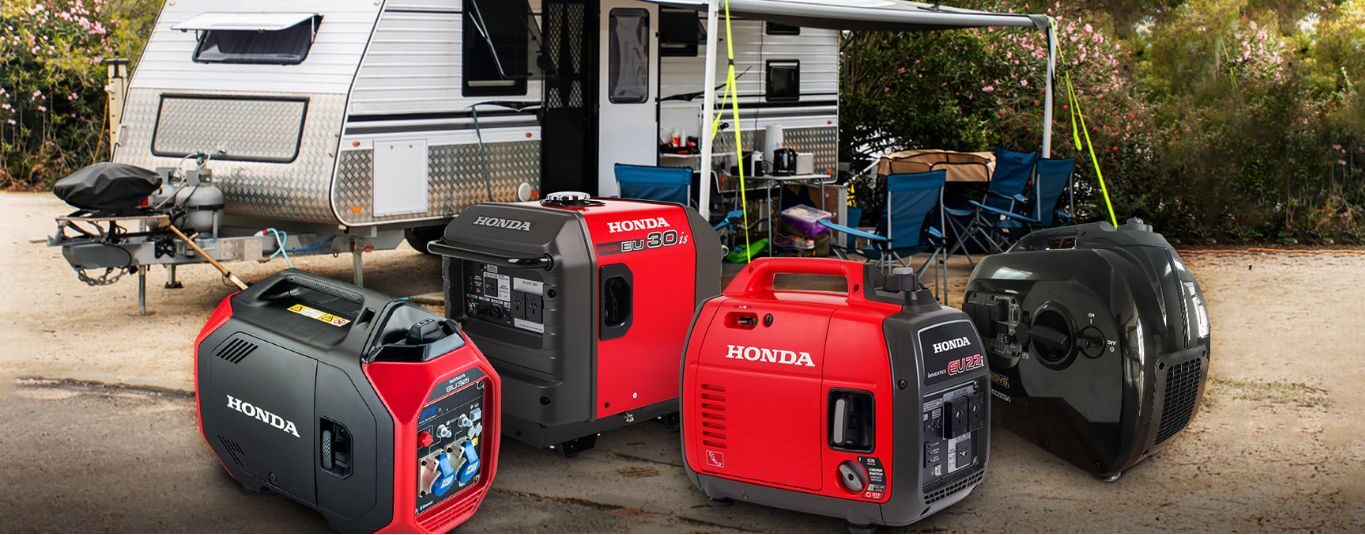
Lightweight generators are versatile and can be used in various settings:
- Camping and Outdoor Activities: Perfect for powering small appliances, lights, and electronic devices while camping or enjoying other outdoor activities. Their portability allows you to take them deep into nature without much effort.
- Emergency Backup Power: Ideal for homeowners needing a reliable backup power source during outages. Their ease of storage and quick setup makes them a convenient option during unexpected power interruptions.
- Construction Sites: Useful on small construction sites for powering tools and equipment. Their compact nature allows them to be moved easily from one location to another as work progresses.
- Recreational Vehicles (RVs): Essential for RV owners who require a dependable power source for their appliances and electronics while on the road. They fit well in storage compartments and provide adequate power without adding significant weight to the vehicle.
- Events and Festivals: Handy for supplying power at events and festivals, where access to electrical outlets may be limited. Their quiet operation ensures they won’t disrupt activities or entertainment.
A lightweight generator offers a practical and efficient solution for those needing portable power. Whether for outdoor adventures, emergency preparedness, or work-related tasks, these generators provide the convenience and reliability you need. Investing in a lightweight generator means having power whenever and wherever you need it, without the burden of heavy equipment.
Pros of a Lightweight Generator
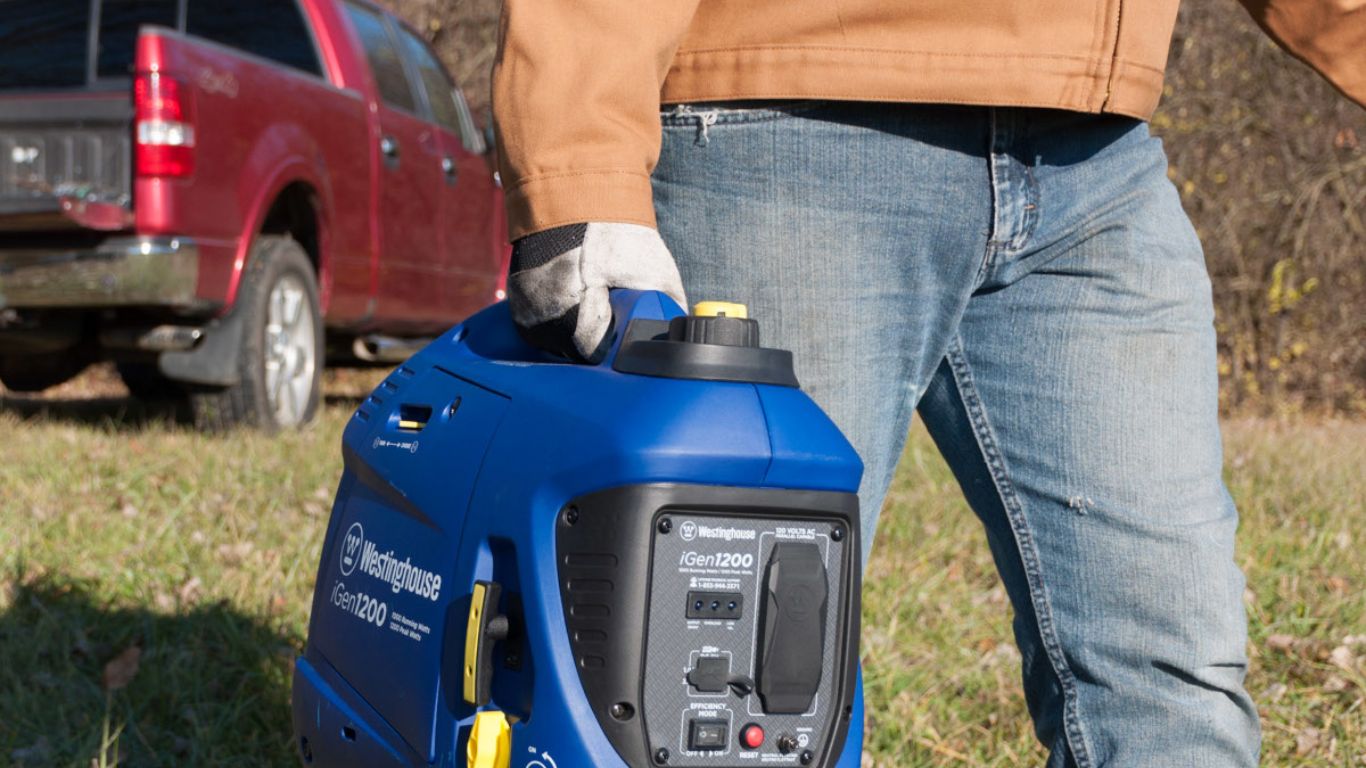
Portability
A lightweight generator is easy to carry and transport. Its design focuses on mobility, allowing users to move it without much effort. Whether you’re heading to a campsite, a tailgating event, or a work site, a lightweight generator ensures you have power wherever you go.
Fuel Efficiency
Lightweight generators consume less fuel compared to heavier models. This efficiency not only saves money but also reduces the frequency of refueling. The ability to run longer on less fuel makes these generators ideal for extended use in remote locations or during emergencies.
Ease of Storage
Storing a lightweight generator is simple. Their compact size means they take up less space, whether in a garage, a vehicle, or a storage closet. This ease of storage ensures that the generator is always ready for use without requiring significant space.
Versatility
Lightweight generators are suitable for various activities. They are perfect for camping, tailgating, and providing emergency power. Their adaptability to different situations makes them a reliable power source for a wide range of needs.
Quieter Operation
Generally, lightweight generators produce less noise. This quieter operation is beneficial in settings where noise can be a disturbance, such as campsites or residential areas. The reduced noise level ensures a more peaceful environment while maintaining power availability.
Choosing a lightweight generator brings several advantages. Its portability, fuel efficiency, ease of storage, versatility, and quieter operation make it a practical choice for many users. Investing in a lightweight generator means having a dependable power source that is easy to use and manage. Whether for leisure, work, or emergency situations, a lightweight generator provides the power you need with the convenience you desire.
Cons of a Lightweight Generator

Limited Power Output
Lightweight generators are not suitable for heavy-duty appliances. Their power output is lower compared to larger models, making them ideal for small devices and basic needs but not for running high-power equipment. This limitation can be a drawback if you need to power multiple large appliances simultaneously.
Shorter Runtime
These generators have smaller fuel tanks, which means less operating time. You will need to refuel more often during extended use. This shorter runtime can be inconvenient, especially in situations where continuous power is required.
Durability Issues
Lightweight generators may not be as robust as heavier models. Their design prioritizes portability, sometimes at the expense of durability. This can lead to a shorter lifespan and the need for more frequent repairs or replacements.
Higher Cost per Watt
Lightweight generators are more expensive per unit of power produced. While they offer convenience and mobility, this comes at a higher cost. You may find that a larger generator provides more power for the same or at a lower price.
Maintenance Requirements
Frequent maintenance is needed to ensure efficiency. Lightweight generators require regular checks and upkeep to function optimally. This ongoing maintenance can be time-consuming and may add to the overall cost of ownership.
While lightweight generators offer many benefits, they also have some drawbacks. Limited power output, shorter runtime, durability issues, higher cost per watt, and maintenance requirements are important factors to consider. Understanding these cons helps in making an informed decision. Despite these challenges, a lightweight generator can still be a valuable tool, especially when portability and convenience are top priorities. Choosing the right generator depends on balancing these factors with your specific needs and usage scenarios.
Detailed Comparison: Lightweight vs. Heavyweight Generators
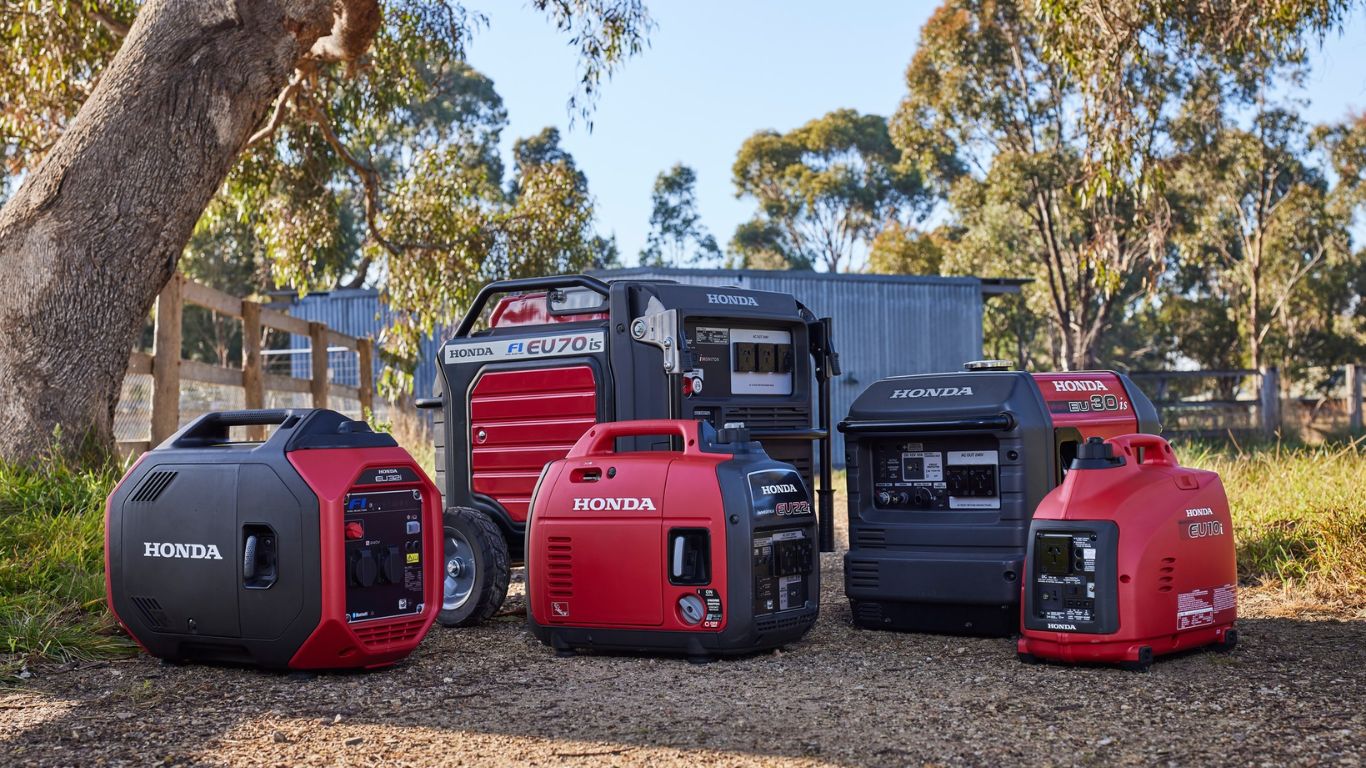
Power Output
Lightweight Generators: These generators offer lower wattage, typically ranging from 1,000 to 3,000 watts. They are suitable for powering small devices like laptops, lights, and small appliances. They are ideal for camping, tailgating, or as a backup for essential home appliances.
Heavyweight Generators: These units provide higher power output, often exceeding 10,000 watts. They can run multiple heavy-duty appliances simultaneously, making them suitable for large homes, construction sites, and industrial applications. Their high wattage ensures that even the most power-hungry devices can operate smoothly.
Portability and Storage
Lightweight Generators: Designed for mobility, they are easy to carry and transport. Their compact size means they take up less storage space, making them convenient for those with limited space. Their portability is a significant advantage for users who need power on the go.
Heavyweight Generators: These generators are larger and heavier, making them more challenging to move. They often require dedicated storage space and may need wheels or other transportation aids. Their size and weight are not ideal for frequent movement but offer stability and higher power capacity.
Noise Levels
Lightweight Generators: Generally quieter, these generators produce less noise, often under 60 decibels. This quiet operation is beneficial in residential areas, campsites, and other environments where noise can be a disturbance.
Heavyweight Generators: They tend to be louder, with noise levels exceeding 70 decibels. While they provide more power, their higher noise output can be a drawback in noise-sensitive areas. Soundproof enclosures or placement strategies may be necessary to mitigate noise.
Fuel Efficiency and Runtime
Lightweight Generators: These generators consume less fuel, making them more fuel-efficient. However, their smaller fuel tanks result in shorter runtimes. They need more frequent refueling, which can be inconvenient during extended use.
Heavyweight Generators: While they consume more fuel, their larger tanks provide longer runtimes. They can operate for extended periods without needing a refill, which is advantageous during long power outages or continuous work periods.
Durability and Maintenance
Lightweight Generators: They may not be as robust as heavyweight models. Their design focuses on portability, which can sometimes compromise durability. Frequent maintenance is necessary to ensure efficiency and longevity.
Heavyweight Generators: Built to withstand more rigorous use, these generators are typically more durable. They require less frequent maintenance and are designed for long-term, heavy-duty operation. Their robust construction ensures they can handle demanding tasks over an extended period.
Choosing between a lightweight and heavyweight generator depends on your specific needs. Lightweight generators excel in portability, fuel efficiency, and quiet operation, making them ideal for mobile and residential use. On the other hand, heavyweight generators offer higher power output, longer runtimes, and greater durability, making them suitable for industrial applications and situations requiring sustained power.
Best Uses for Lightweight Generators
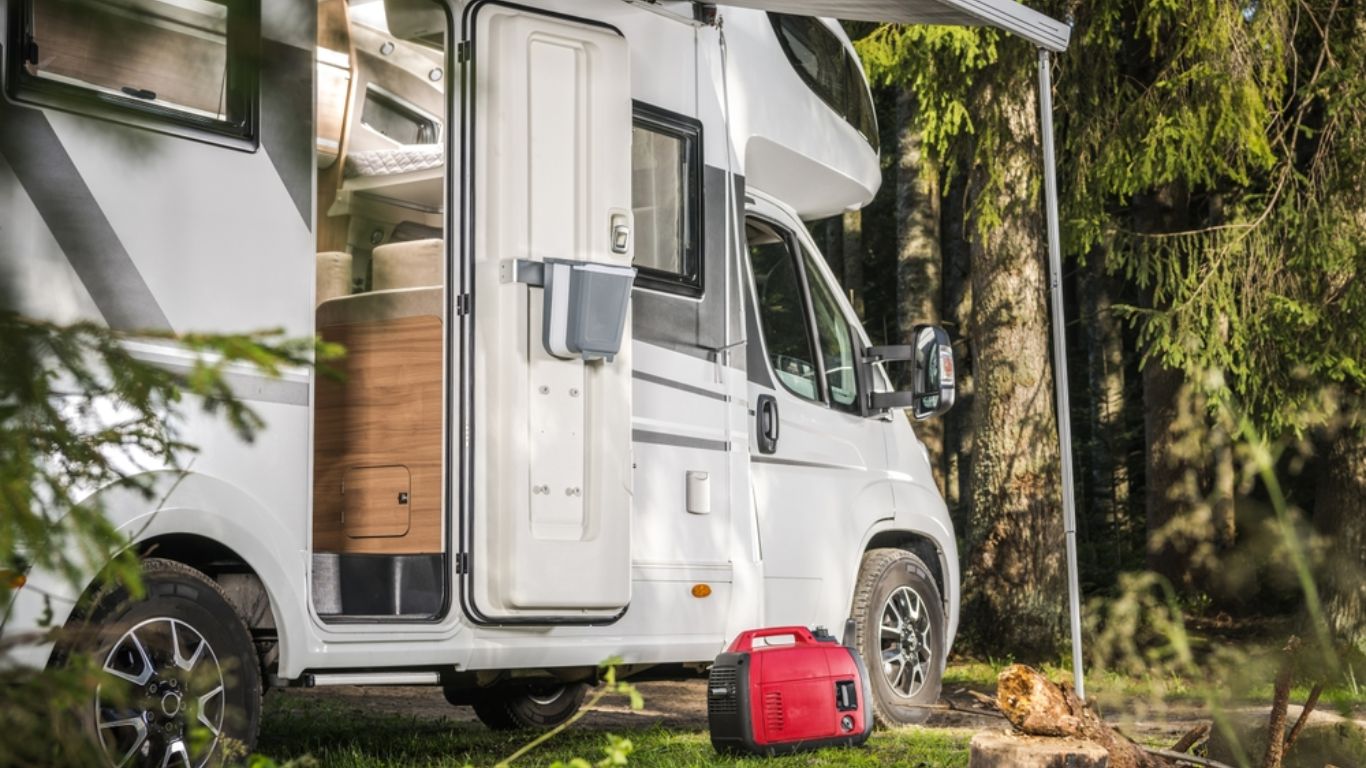
Mobile Detailing
Lightweight generators are perfect for mobile detailing businesses. They provide the necessary power for tools and equipment on the go. Their portability allows you to carry them easily to different locations, ensuring that you can offer your services wherever needed.
Camping
Using a lightweight generator while camping enhances the experience. It provides power for lights, cooking appliances, and electronic devices. This convenience allows campers to enjoy the great outdoors without sacrificing the comforts of modern living. Its quiet operation ensures that you maintain the peaceful environment of nature.
Tailgating
A lightweight generator is a great addition to any tailgating setup. It powers grills, televisions, and sound systems, making your tailgating experience more enjoyable. With reliable power, you can keep the party going without interruptions, creating memorable moments with friends and family.
Emergency Power
In emergency situations at home, a lightweight generator is invaluable. It provides backup power for essential appliances, such as refrigerators, lights, and medical devices. Its ease of use and quick setup ensure that you are prepared for power outages, keeping your household running smoothly.
Outdoor Events
For picnics, fairs, and other outdoor gatherings, lightweight generators are ideal. They power music systems, lights, and other equipment, enhancing the overall experience. Their portability and quiet operation make them a practical choice for ensuring that your event runs smoothly and successfully.
Lightweight generators offer versatile solutions for various needs. Whether for mobile detailing, camping, tailgating, emergency power, or outdoor events, they provide reliable power in a portable and convenient package. Their ease of use and efficiency make them a valuable addition to any activity, ensuring that you have the power you need, whenever and wherever you need it. Investing in a lightweight generator means embracing flexibility and preparedness, enhancing your experiences across different scenarios.
Conclusion
The pros and cons of lightweight generators highlight their practical benefits and potential limitations. Their portability, fuel efficiency, ease of storage, versatility, and quieter operation make them an attractive choice for many users. However, they also come with drawbacks such as limited power output, shorter runtime, durability issues, higher cost per watt, and frequent maintenance needs. By weighing these factors, you can determine if a lightweight generator meets your specific needs, ensuring you choose the best portable power solution for your activities and requirements.
Marion Woods is an accomplished generator technology expert with over 15 years of experience, currently serving as the Chief Technology Officer at GenTech Power Solutions. She holds a Master’s degree from MIT and specializes in enhancing generator efficiency and integrating renewable energy sources. Marion is a respected author and speaker in the engineering community, dedicated to pioneering sustainable power solutions.
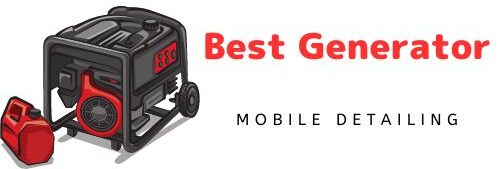
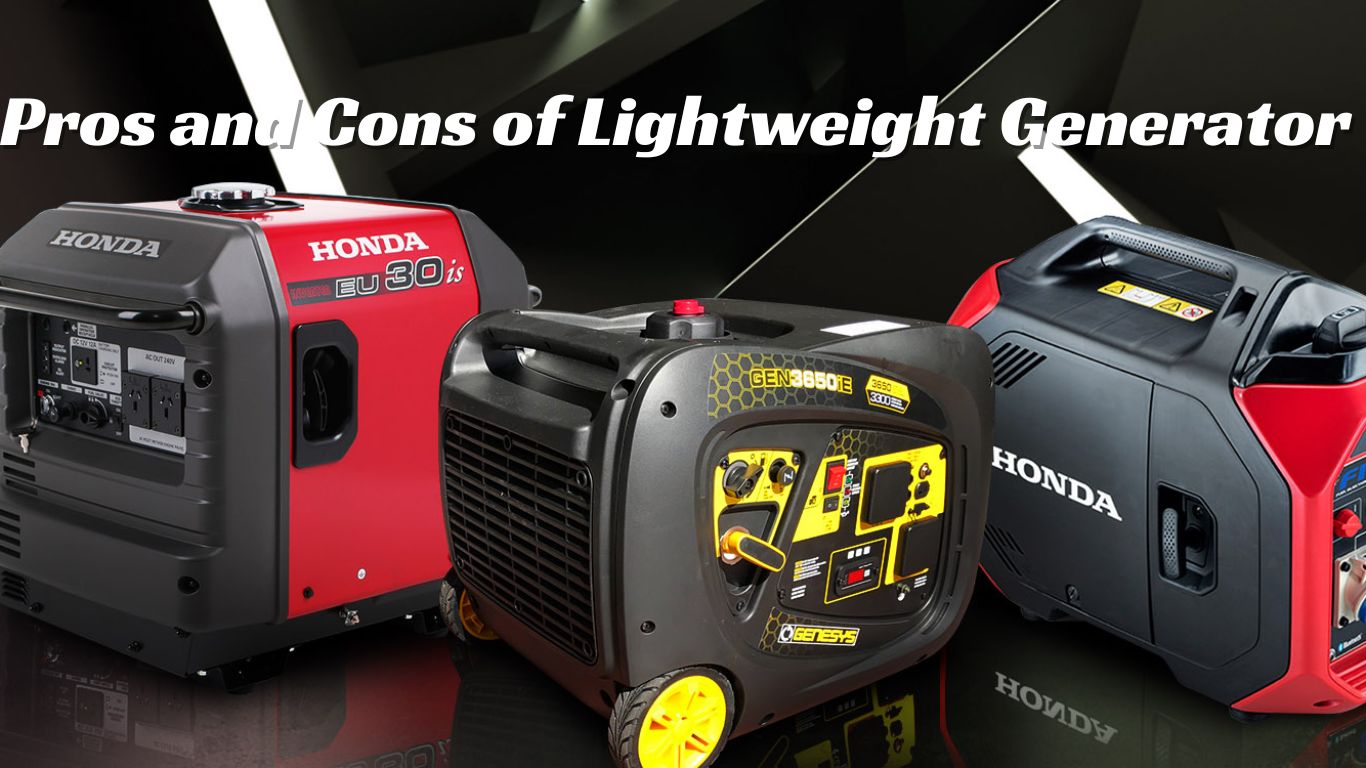
2 thoughts on “Pros and Cons of Lightweight Generator”